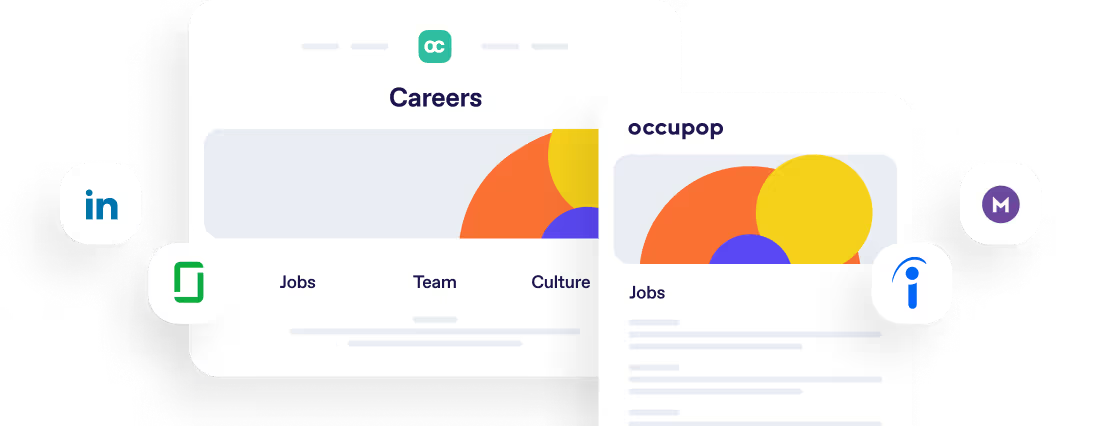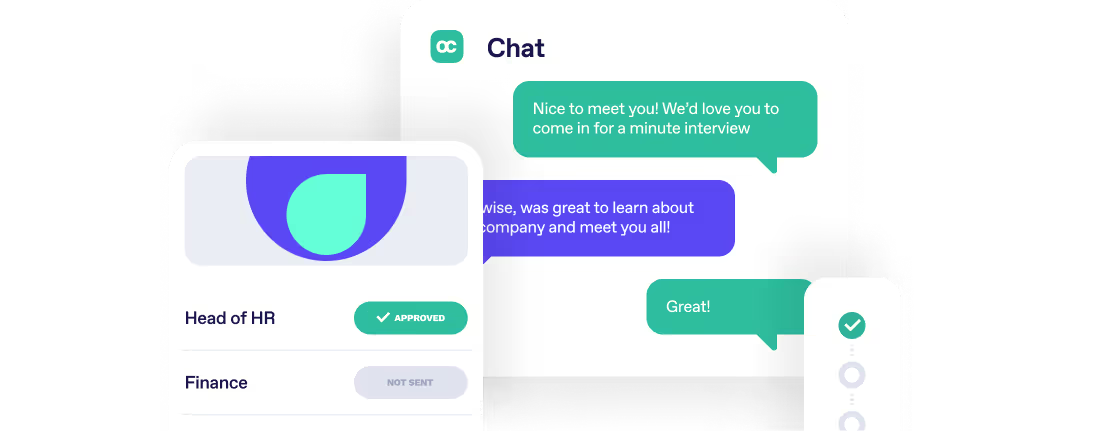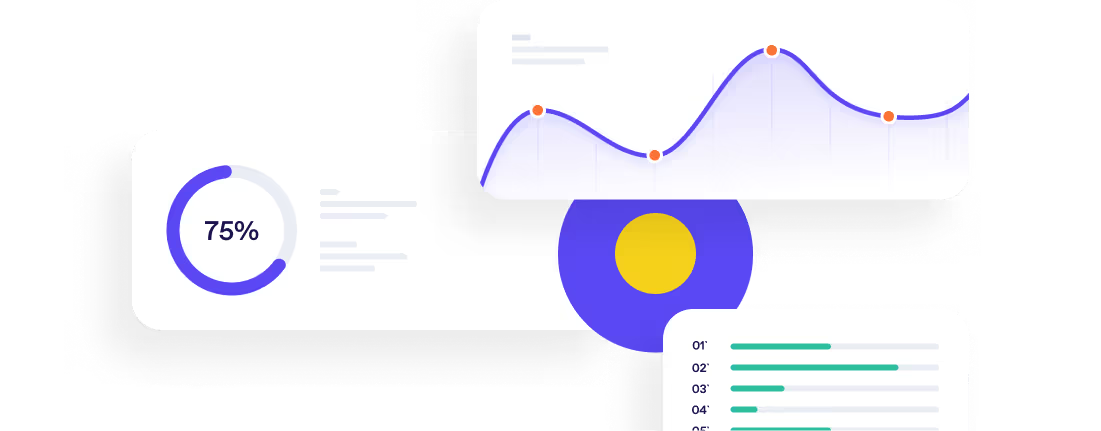How to Use Recruitment Data to Attract Talent



With an influx of data and analytics, the recruiting process is getting smarter, giving you more valuable insights to help you find the best talent quickly.
According to the LinkedIn 2018 report on global recruiting trends, 69% of talent professionals think data could elevate their position. Meanwhile, 50% of hiring professionals list big data as an integral part of their hiring strategy and are using it to evaluate skills gaps and build better offers. This means that the use of data for talent acquisition helps both the prospective candidate receive better job offers, and the hiring team find the talent they need.
Talent acquisition is all about using strategy to find and hire the best candidate, so it’s time to get strategic. If you haven’t started implementing data into your recruiting process, or if you’re looking for new ways to reap the benefits of big data insights, we’ve narrowed down the best strategies for “Utilising Recruitment Data to Attract The Best Talent.”

Stay ahead of the competition with predictive analytics
It is never a bad time to start using recruitment data to your advantage, even if you’re not currently looking for new talent.
By analysing the data of current employees, you can learn what to look for (or look out for) in prospective candidates. Big data helps you determine what skills, demographics or even personality traits lead to better retention and company culture.
For example, when the JetBlue analytics team analysed their customer feedback data, they learned that the employee trait that led to highest customer satisfaction was in fact “helpful” rather than “nice,” as they had previously assumed. Once they integrated these analytics into the recruiting process and hired more “helpful” employees, there was a noticeable increase in customer satisfaction, as well as revenue. It pays to analyse!
Predictive analytics can also be used to track market trends and identify skill gaps in the company, so you can stay prepared and make decisions based on strategy and company requirements.
Use AI & automation technology to your advantage
AI software is the key to creating a simplified and successful recruiting process. According to the 2018 LinkedIn report, 67% of recruiters and hiring managers shared that AI helped them save time.
Artificial Intelligence can be programmed to look for certain skills or traits in a large pool of applicants, recommending only the candidates that pass this screening to the hiring team. This allows hiring professionals to spend more time on what really matters in talent acquisition: connecting with the best candidates.
Software company Intuit Inc. uses AI to filter through thousands of developer profiles, leaving the hiring team to focus on the top 1%. The result has been faster hiring times, cutting the days it takes them to hire new talent in half. They have also noticed an increase in employee performance and quality of hire.
As an added bonus, AI is paving the way for more diversity in the work place. By eliminating bias and using software to screen applications, prospective candidates will be judged purely based on their skills and experiences. This means that you get the best talent possible, as well as a better company culture. Read more on creating a great company culture for all your data driven hires here.
LinkedIn respondents noted that they most often use AI for:
- Sourcing candidates
- Screening CVs
- Nurturing prospective hires
- Scheduling interviews
- Engaging candidates
Attract talent with employer branding
Employer branding is the recruitment buzzword of the year. The way potential candidates perceive your company can make or break your acquisition and retention success.
According to a study conducted by Risesmart, 84% of employees would consider quitting their current job to move to an employer with a better reputation, even if the salary bump wasn’t that big. Creating a brand that focuses on employee satisfaction translates to better retention and better reviews—which will attract the best future talent.
Follow the analytics of social media posts to see how successful your brand is and whether—and where—it needs improvement. You can collect data to improve your company brand by conducting frequent surveys for current employees. Ask questions about their recruitment experience, their satisfaction within the company and how likely they are to recommend the company to other potential candidates. The data from their responses will show you how to improve the perceptions of prospective candidates, as well as keep the talent you already have.
The bottom line of employer branding is that candidate experience matters. Candidates are less likely to reapply to the same company if they have an initial bad experience, such as a lack of communication or professionalism. Use automation technology to streamline the recruiting process, from scheduling a welcome email to engaging with a new hire, in order to maintain an attractive employer brand.
INSERT-CTA
Determine the best recruitment channels
With modern technology, there are seemingly unlimited avenues to advertise your position and source talent professionals. However, just because one company finds success on social media channels does not necessarily mean that another will as well.
Big data allows you to accurately test the success rate of your recruitment channels so you can put more energy into the channels that are bringing you the best candidates. You can track how many interviews were conducted or how many offers were made to candidates sourced from each channel, or you can pinpoint which channels your most successful employees came from. With the help of data, finding the right recruitment channel is about quality rather than quantity.
If certain channels are unsuccessful that you thought would bring in promising applicants, consider diving deeper with your analytics. Track conversion rates to determine whether you should shorten or simplify the application form, or redesign pages such as Facebook or Instagram to attract more viewers.
Allocating your budget to the best recruitment channels for your ideal candidates will save you money and help you find better candidates quickly.
Use insights about your ideal candidate to increase acceptances and retention
You can also use data analytics to learn more about you ideal candidate’s behaviour online—what are they searching for, what links are they clicking on, what sites are they visiting? As noted in the LinkedIn report, 46% of companies use data in the talent acquisition process in order to better understand what the candidate wants. By discovering what your ideal candidates wants, you can establish how to get their attention.
It is more important than ever to learn about future candidates because of the emerging Millennial and Generation Z work force. Studies have shown that with 70% of the world’s workers embracing remote work, candidates are becoming increasingly particular about the environment they work in.
In order to attract better applicants and more acceptances to employment offers, discover what perks and types of company culture your ideal candidates are searching for. If you offer these from the get-go, you can achieve better retention for years to come.
Another way to use data to learn about your ideal candidate is to keep track of where successful employees went after leaving your company. Big data can help you hold on to high performers by recommending job enrichment and promotional opportunities so that you don’t lose them to a more challenging and rewarding job.

INSERT-LINE
Big data has officially changed the recruiting game for the better. With the help of analytics and automation technology, finding and keeping the best talent is faster, easier and more effective than ever before.
Don’t know how to start using data to your advantage? Occupop is here to help! We offer real-time analytics giving you access the important metrics like time to hire, CV source and team performance along with data to evaluate and track your performance on different recruiting channels, so all you have to do is focus on the important part: connecting with other humans.
Check out our website to get started for free, and subscribe below to get more recruiting tips sent straight to your inbox!
Summary Points
5 ways to utilise recruitment to help with talent attraction:
- Stay Ahead of Competition with Predictive Analytics: By analysing the data of current employees, you can learn what to look for (or look out for) in prospective candidates. Big data helps you determine what skills, demographics or even personality traits lead to better retention and company culture.
- Use AI & Automation Technology to Your Advantage: Artificial Intelligence can be programmed to look for certain skills or traits in a large pool of applicants, recommending only the candidates that pass this screening to the hiring team. This allows hiring professionals to spend more time on what really matters in talent acquisition: connecting with the best candidates.
- Attract Talent With Employer Branding: Follow the analytics of social media posts to see how successful your brand is and whether, and where, it needs improvement. You can collect data to improve your company brand by conducting frequent surveys for current employees.
- Determine The Best Recruitment Channels: Test the success rate of your recruitment channels so you can put more energy into the channels that are bringing you the best candidates. You can track how many interviews were conducted or how many offers were made to candidates sourced from each channel, or you can pinpoint which channels your most successful employees came from.
- Use Insights About Your Ideal Candidate to Increase Acceptances and Retention: In order to attract better applicants and more acceptances to employment offers, discover what perks and types of company culture your ideal candidates are searching for. If you offer these from the get-go, you can achieve better retention for years to come. Another way to use data to learn about your ideal candidate is to keep track of where successful employees went after leaving your company.
Simple. Beautiful.
Recruitment Software.
HR updates sent straight to your inbox
You might also like...


Manage your entire hiring process simply, from engagement to management, hiring and onboarding







Simple. Beautiful.
Recruitment Software.
Recruitment Software.






